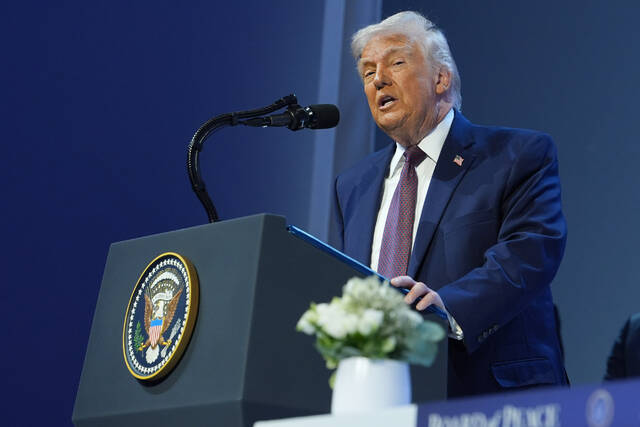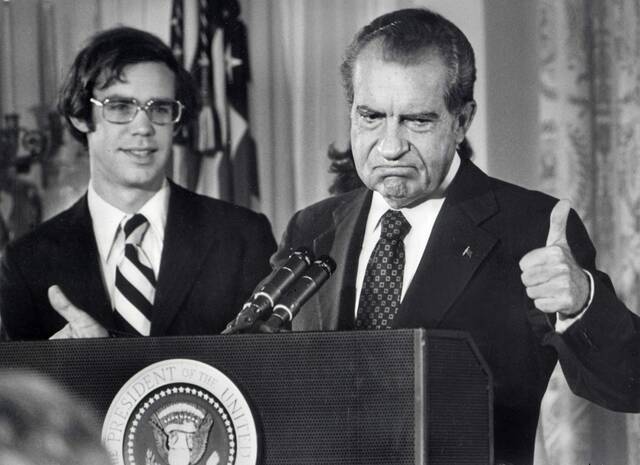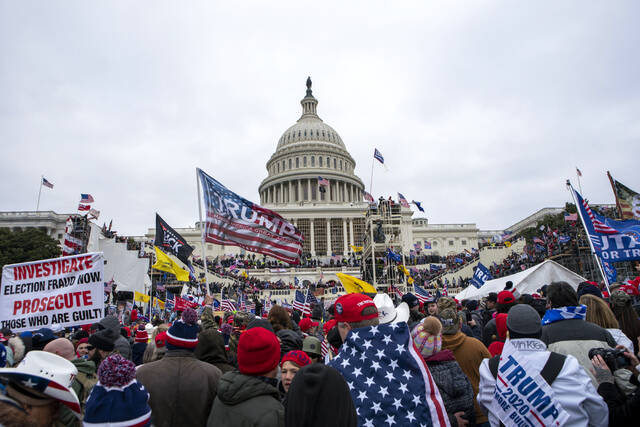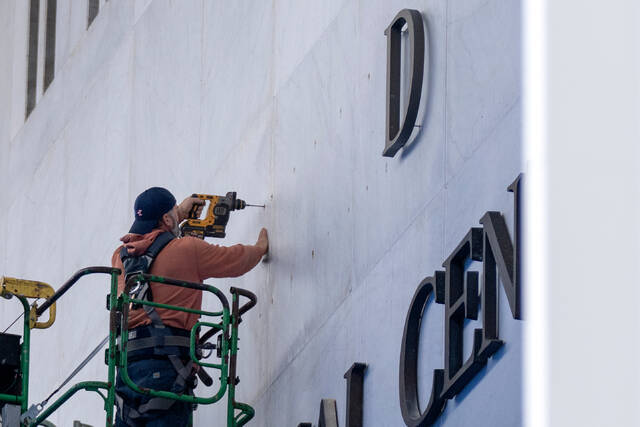After the legal search of Donald Trump’s home at Mar-a-Lago last week, his supporters howled that the actions of the FBI were just what would take place in a banana republic.
Author O. Henry first used the term banana republic to describe Central American countries that were exploited by American corporations. Banana republics are normally governed by dictators or the military.
In banana republics, search warrants are not approved by independent federal judges or professionally executed, as happened here. But we certainly have had banana republic moments in our country in recent years.
We can begin with the Trump-orchestrated attempted coup of Jan. 6, 2021: an armed assault on the seat of government, a hunt for the duly elected representatives of the people and threats to hang them, an attempt to stop the peaceful transfer of power. These actions were designed to keep a defeated Trump in office. This is what happens in banana republics.
We had an early warning at Trump’s June 2017 televised cabinet meeting, where his cabinet secretaries took turns groveling at his feet. Trump beamed and nodded as they all mimicked Chief of Staff Reince Priebus. Priebus told Trump, “We thank you for the opportunity and the blessing to serve your agenda.”
Classic banana republic stuff.
In their upcoming book “The Divider: Trump in the White House, 2017-2021,” Peter Baker and Susan Glasser wrote that Trump told Chief of Staff John Kelly that he wanted generals who were “totally loyal” to him — like Hitler’s generals. Kelly, a former Marine general, told Trump that Hitler’s generals tried to kill him three times.
Ignoring that historical fact, Trump told Kelly that he was wrong and stuck with his own inaccurate version. Trump often referred to our military leaders as “my generals,” as if they worked for him and not the republic, as if they did not take an oath to support the Constitution. More banana republic fantasizing.
In his poem “The United Fruit Co.,” Chilean Pablo Neruda summed up the corrosive effect of a banana republic:
Over the restless heroes
Who brought about the greatness,
The liberty and the flags,
It established a comic opera …
As Trump world groused about the surprise FBI visit to Mar-a-Lago, it was hard to forget Trump’s reputation for shredding and tearing documents into pieces that his staff has later taped together to comply with the Presidential Records Act. One staffer claims that she saw him eating papers after meeting with his lawyer.
Maggie Haberman, in her forthcoming book “Confidence Man: The Making of Donald Trump and the Breaking of America,” cites Trump staffers who describe his habit of flushing papers down the toilet. And he did abscond with those boxes of government documents that the FBI seized last week.
Some ultra right-wing pundits and pro-Trump politicians claim that the search warrant was an unnecessary overreach, but a federal grand jury subpoenaed the stolen records two months ago. Trump ignored the subpoena.
With Friday’s court-ordered release of the search warrant contents and an inventory of the items seized, we now know that he was hiding top secret documents that were a danger to America in his hands — secrets that would be of great value to our enemies.
This investigation will follow the evidence. But for now, a great American civics lesson has been refreshed.
This past June marked the 50th anniversary of the Watergate break-in that led to the resignation of President Richard Nixon. As we learned then, no one is above the law in America.








